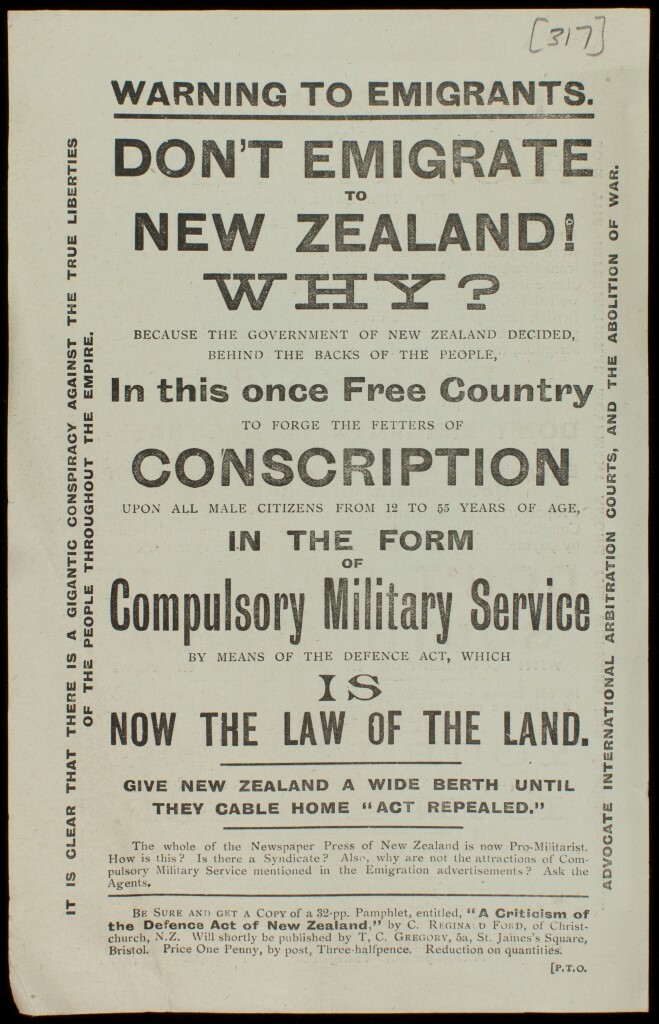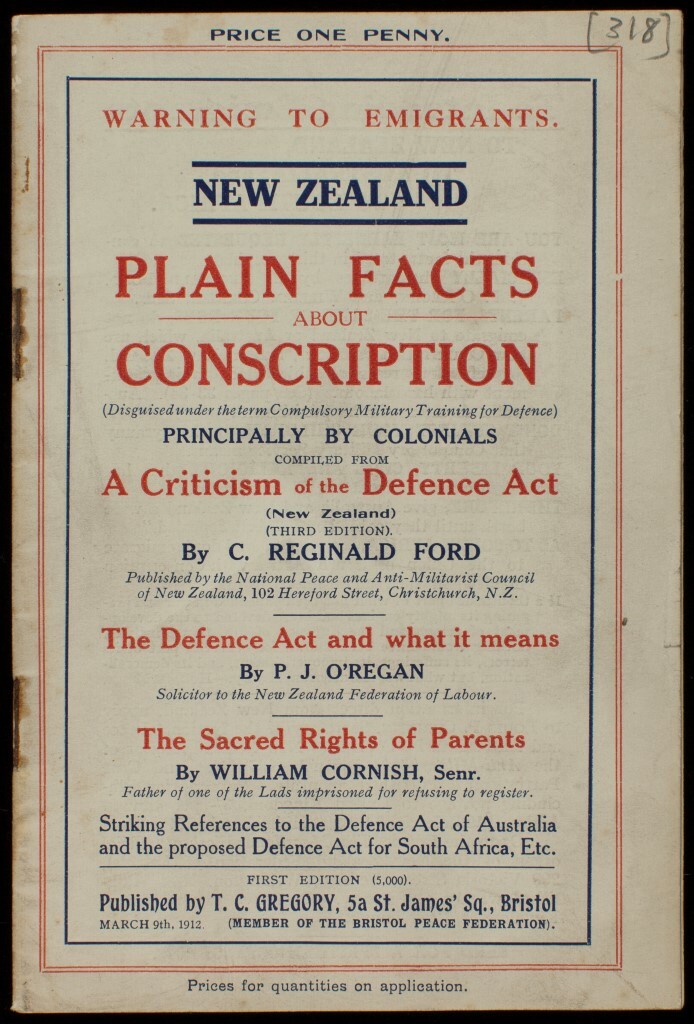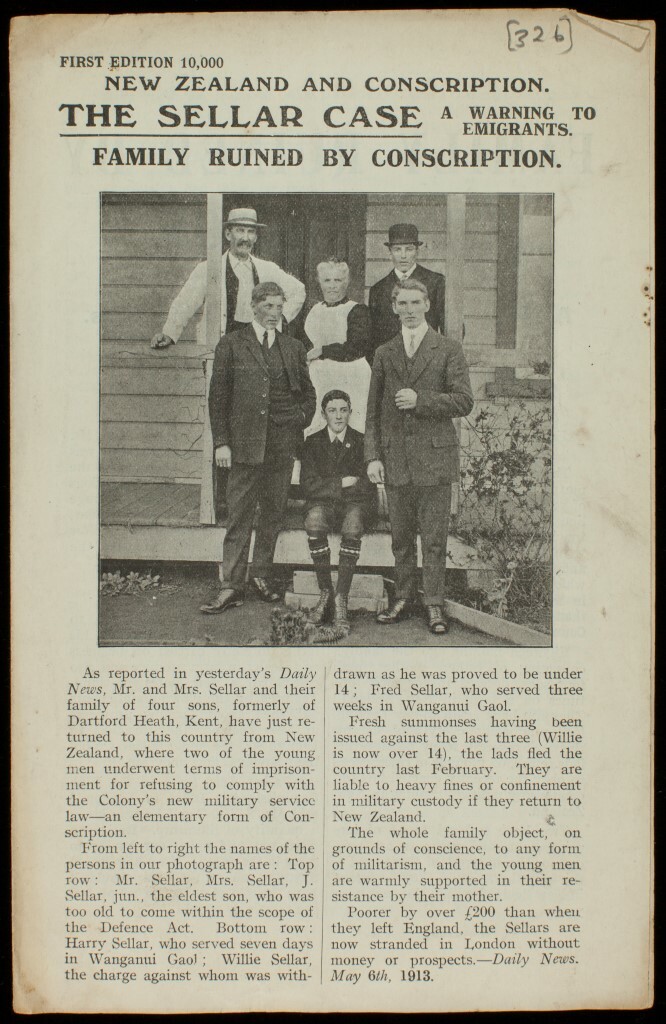A series of pamphlets in the Charles Mackie Pamphlets collection warning emigrants against coming to New Zealand show the depth of feeling about compulsory military training amongst British peace campaigners in the lead up to World War One.
The pamphlets were produced by Bristol Quaker Thomas Churchus Gregory who was shocked into action by reading a copy of the New Zealand Defence Act of 1909. He was so horrified to find that a British Colony was introducing compulsory military training that he published a leaflet about the Act with the intention of letting people in his own neighbourhood know about it.

By chance Gregory’s one-page leaflet Warning to Emigrants: Don’t Emigrate to New Zealand! came into the hands of Colonel Keene, the organiser of the National Service League which was campaigning for compulsory military training in Britain. Keene criticised the leaflet and its author in an article for the London Morning Post which incidentally supplied Gregory’s name and address. This article was then picked up by New Zealand newspapers and soon Gregory began to receive letters and further information from Charles Mackie and other anti-militarists in New Zealand.
Deciding that the issue was too great to ignore Gregory, who worked in a printing business, began to publish further leaflets warning would-be British emigrants from making New Zealand their destination. A booklet, compiled mainly from writing by New Zealanders, called Warning to Emigrants: New Zealand: Plain Facts about Conscription appeared in March 1912. At least 10 other leaflets were issued over the next 2 years; some of them ran to several editions and the print runs were often in the tens of thousands. A Warning to Emigrants published in January 1913 was the 4th edition and had a print run of 25,000.

Thomas Gregory was born at Bristol in 1861 and was descended from a long line of Quakers (also known as the Society of Friends) on his father’s side. He had been dux of the Quaker public school Sidcot where he excelled in history and maths. He was noted throughout his life for his tremendous energy despite the fact that he suffered from chronic asthma.
Gregory was about 50 when he began his campaign against Compulsory Military Training in Australasia. As well as issuing leaflets he wrote letters to the English newspapers, addressed meetings, and gave out pamphlets to prospective emigrants. He questioned speakers at meetings of the National Service League and corresponded frequently with the New Zealand High Commissioner in London.
Freedom of belief and freedom of conscience had been hard-won by the founding members of the Society of Friends, and Gregory made it his mission to alert the British public to the ease with which these precious rights could be threatened by militarism and conscription.

The experiences of one British family highlighted what could happen to unwitting immigrants. Mr and Mrs Sellar and their four sons emigrated to New Zealand from Kent in 1911. The whole family were strongly anti-militarist and it was a shock to find that their middle two sons were liable for compulsory military training. After refusing to drill, being convicted and fined, they served time in Wanganui Prison for failure to pay their fines. When the youngest son turned 14 fresh summons were issued against three sons. This prompted the family to flee the country in February 1913. They were reported to be stranded in London without money or prospects, their sojourn in New Zealand having cost them more than £200. "What we are inclined to complain of most bitterly", Mr Sellar was reported as saying, "is that we were not told before we went out. I hope our case will be a warning to others."
New Zealand’s National Peace Council Secretary, Charles Mackie, whose correspondence with Gregory is in the Charles Mackie Papers at Canterbury Museum, believed that Gregory’s death in December 1914 at the age of 53 was brought about by the stress and over-work which the anti-conscription campaign brought into his life. Paying tribute to Gregory’s indefatigable labours on behalf of New Zealand, Mackie also acknowledged that Gregory was driven by the belief that compulsory military training was an issue for the whole of the British Empire.





